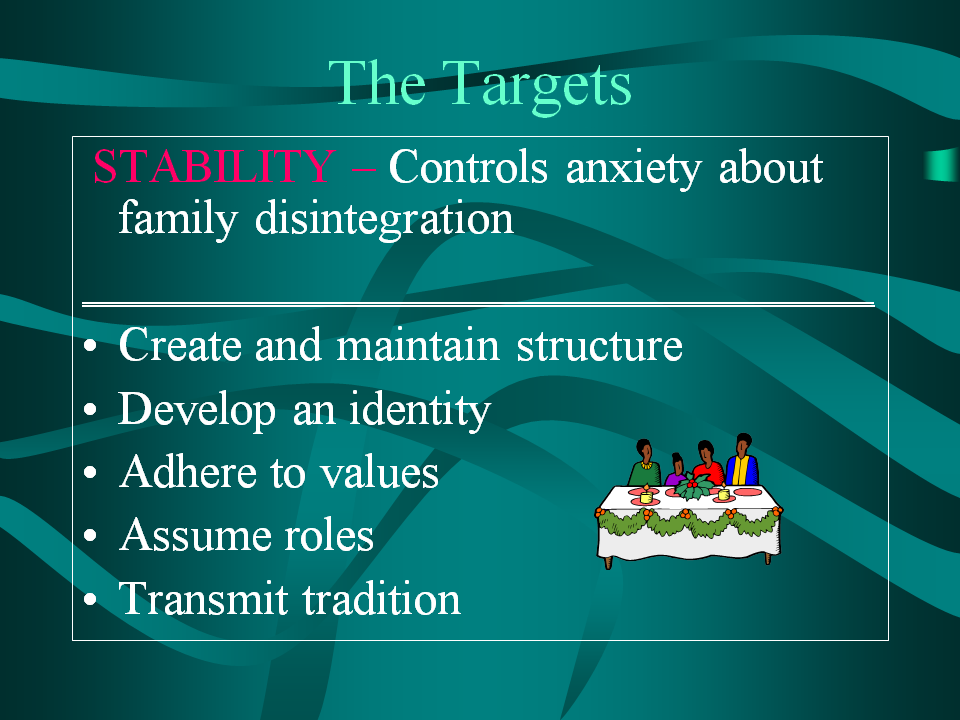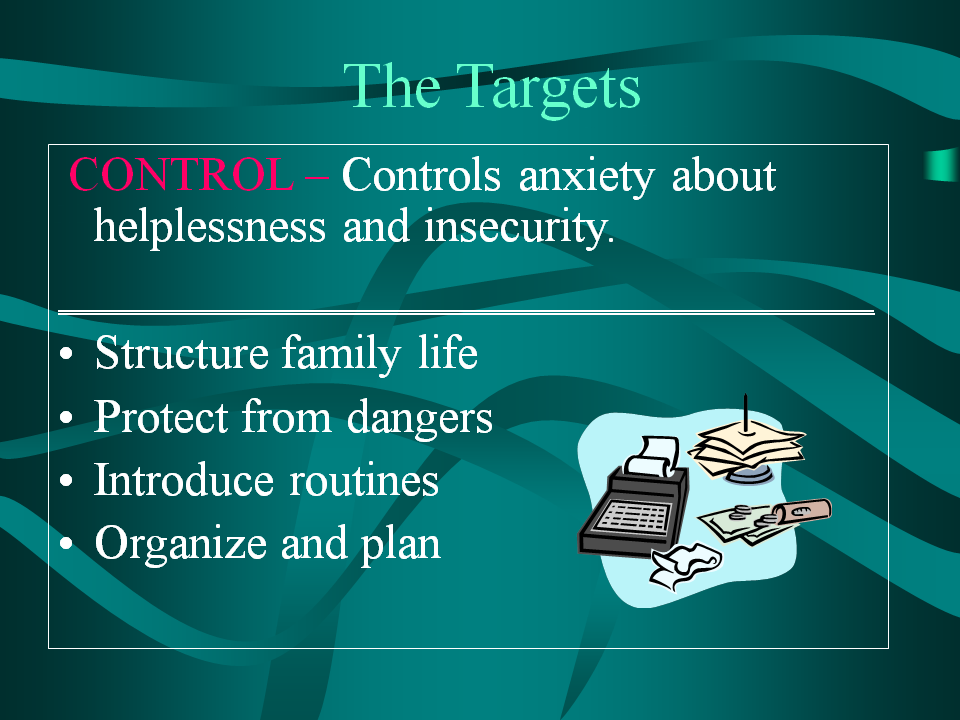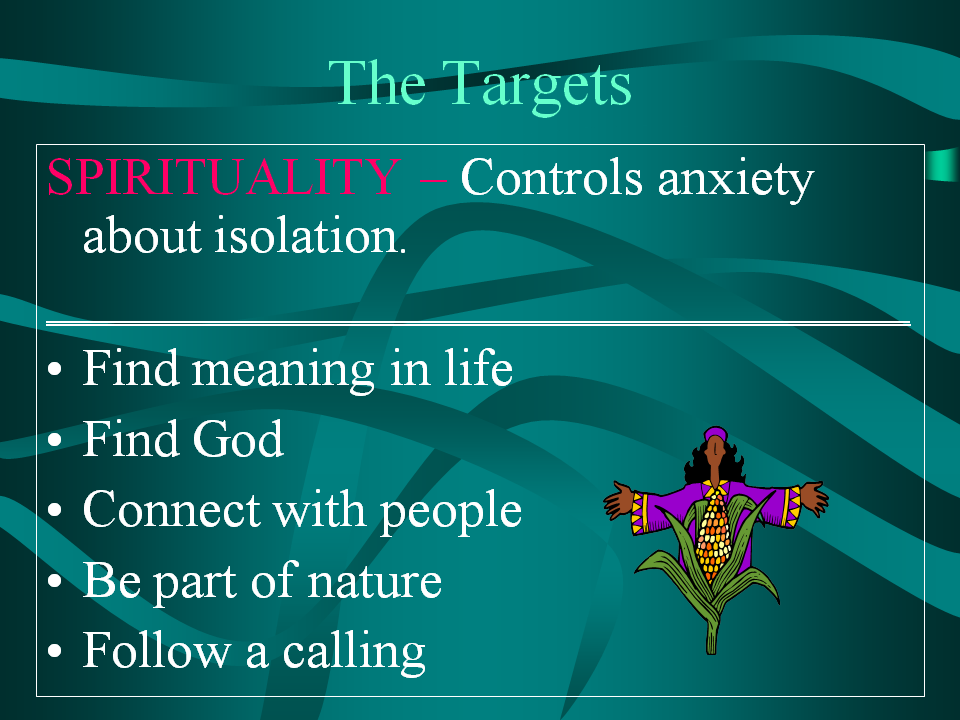- The Targets

Stability is most important for survival of the system. It defines people's personality, families' or groups' core characteristics. Stability is structure passed from generation to generation. It forms the core of a person or group, the loss of which is very destructive. Threats to stability create anxiety (anger, depression) and is the root of personal and interpersonal conflicts. Stability is maintained by reinforcing a value structure, beliefs, roles, and traditional patterns of life.

Growth may seem to be the opposite of stability. This is not quite true, however. In a healthy system, growth does not occur at the expense of stability, but may happen in different areas of the life process. A healthy system may have much stability and much growth or any mixture of the two. Most people or social groups have a need for growth in order to create stimulation, learning, or necessary adjustment to changes from within the system (such as change of membership, or developmental changes) or from the environment. Growth is needed to give the system's life a purpose. Some changes are sought as is the case in entering college, but much growth occurs involuntarily. The resolution of a crisis is growth. This signifies adjustment to difficult situations or losses, such as illness or death.

Control is especially important in Western culture. Humans gain a sense of self-worth and confidence through control, leading from self-control to control of others and the environment. Control involves the conduct of structured patterns of behaviors and the decisions to maintain or change these patterns. Control includes planning, organizing, decision-making, scheduling, disciplining, or limit setting. Control can be given to other systems, e.g. the medical system in the case of a disease.
In dealing with threats to the system through control involves fighting or counteracting the threat, e.g. fighting disease with medical treatment or buying insurance to avoid disasters. Thus, a person will try to eliminate the threat and thereby remain unchanged.

Spirituality is the counter pole of control. Again, in a healthy system, the two targets do not compete or suppress each other. Certain groups of people tend to focus more on control, while others are more spiritual in nature. Spirituality may gain importance with age and in difficult life situations. Nevertheless, control can stay important in many older people as they strive to remain independent.
Spirituality is not equal to religion. It is the act of being connected with other systems and become part of them. These systems could be God or spirits, nature, or other people. In misguided spirituality, such systems could be drugs, alcohol, or sexual objects. In dealing with threats through spirituality, an individual or group will change within to accept the circumstances and thereby become a changed person.
Spirituality involves transcendence or going beyond the systemic self, to seek a sense of universal order in another system. This includes relationships within which the members find congruence on a higher plane, leading to a feeling of love and acceptance.

 English
English  Español/Portugués
Español/Portugués  Deutsch
Deutsch 